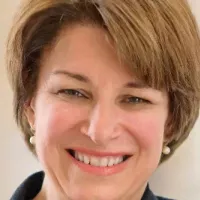BBC News, a division of the British Broadcasting Corporation, is the world's largest broadcast news organization. It produces approximately 120 hours of radio, television, and online news content daily. With over 5,500 journalists, including 250 foreign correspondents in 50 bureaus, the BBC delivers news and current affairs both in the UK and internationally. Deborah Turness has been the CEO of BBC News and Current Affairs since September 2022.
Mentioned in this timeline

Vladimir Vladimirovich Putin is a Russian politician and former intelligence...

Elizabeth II reigned as Queen of the United Kingdom and...

The White House located at Pennsylvania Avenue NW in Washington...
CBS Broadcasting Inc CBS is a prominent American commercial broadcast...
India officially the Republic of India is a South Asian...

Christmas is an annual festival celebrated on December th commemorating...
Trending

8 months ago Bailey Zimmerman Serves Chicken, Announces New Album 'Different Night Same Rodeo'

8 months ago Alex Warren to electrify the 2025 American Music Awards with a stellar performance.
3 months ago Lockheed Martin Exceeds Q3 Expectations, Increases Dividend and Buyback Program, Raises Profit Outlook

3 months ago Alex Eala Enters Hong Kong Campaign with Career-High Ranking, World No. 51
6 months ago SAP's Stock Falls Amid Mixed Q2 Earnings & AI Concerns: Investor Outlook

Amy Klobuchar is a prominent American politician and lawyer Since she has served as the senior United States Senator from...
Popular

Thomas Douglas Homan is an American law enforcement officer who...

William Franklin Graham III commonly known as Franklin Graham is...

Jupiter is the fifth and largest planet from the Sun...

XXXTentacion born Jahseh Dwayne Ricardo Onfroy was a controversial yet...

Kristi Noem is an American politician who has served as...

Instagram is a photo and video-sharing social networking service owned...